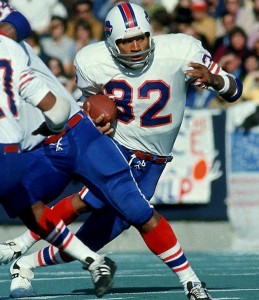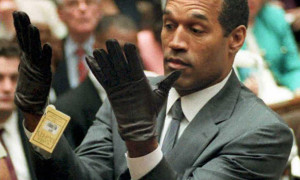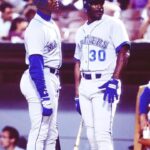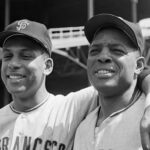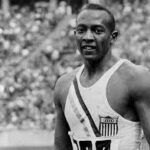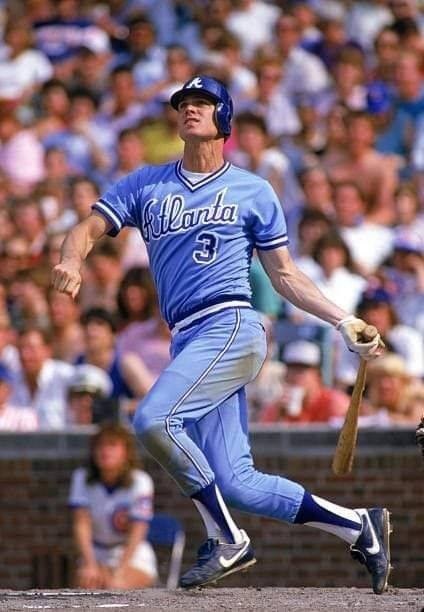Waiting for the Weekend: O.J. Simpson – Trapped Between Two Worlds
Typically, one of the great results of sports is in its ability to unite. Whether it be a team of players from different backgrounds coming together to create one cohesive unit or a group of fans with little more in common than their fondness for a team or player who come together to cheer, celebrate and agonize over the successes and failures of that chosen favorite.
As I join the rest of society in viewing the latest chapter in the nearly 50 year saga of former athlete O.J. Simpson, it seems clear that whether intended or not, instead of being someone that people unite around, O.J. has more often served as a divider.
Born and raised in the housing projects of the Potrero Hills section of San Francisco, Orenthal James Simpson joined a gang as a teenager and was incarcerated at least three times. His life could have very easily been one led quietly in jails and the neighborhoods of his hometown had he not possessed a number of characteristics that ultimately helped him rise above his potential path.
Regardless of whether it was a meeting with superstar Willie Mays or the encouragement he received around his own athletic ability, or a combination of factors, eventually Simpson moved off the path to destruction and became a standout high school athlete.
However, as this story from the 1973 book Power Football illustrates, even once Simpson moved onto a path with success as a potential end, he seemed to teeter on the edge.
A star athlete at Galileo High School, Simpson told writer Murray Chase about an incident that very nearly could have gotten him thrown off the junior varsity team.
Nor was it a bad beginning for a fellow who almost had his football career cut off before it started by coming within a lie of being thrown off the high school junior varsity football team.
On the day of a big game, Simpson and two teammates were spending some time shooting dice in the bathroom at school. They all crapped out, though, when Jack McBride, their coach, walked in and found them playing their little game. Many coaches in that situation would simply warn the players never to do that again and let them go. But McBride, in a move for which Simpson could later be thankful (even though he escaped punishment) took the boys to the dean’s office.
“When we went to the dean’s office,” Simpson recalled, “the other two guys, Joe Bell and Al Cowlings, walked in front of me. Coach McBride told the dean he caught us shooting dice in the rest room. He gave the dean the dice and left. When he did, the dean told me to close the door. So I started out and began to close the door from the outside, but the dean called, ‘Where are you going, O.J?’ So I said, “I wasn’t shooting craps. Coach just asked me to help him bring these guys down.’ Then the dean told me I could go and the other guys got suspended.”
The other two boys, one of whom (Cowlings) later became Simpson’s teammate at USC and Buffalo, couldn’t resent O.J.’s little ploy. “They thought it was pretty smart for me to think that quick,” Simpson said. “Al said there was nothing he could say about it. He said if I could get away with it, I deserved it.”
As we now very well know, Simpson has continued to live on that edge for his entire life.
After winning the Heisman Trophy at the University of Southern California in 1968, Simpson was relegated to the NFL’s equivalent of Siberia in Upstate, New York as a member of the Buffalo Bills. However, even though he struggled over the first three years of his career and some thought he might end up being an NFL bust, he still managed to catch the eye of television and advertising executives.
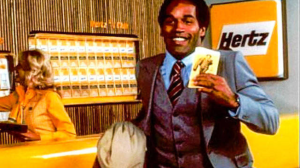
To some, Simpson was better recognized because of his Hertz commercials than because of his play on the football field.
He first appeared in minor uncredited roles on the TV shows Ironside and Dragnet 1968 while still a student at USC and by the mid-1970s was making regular appearances on TV and in the movies.
After endorsing a number of products previously, in 1975 he became a national spokesman for Hertz rental car. He was one of the first African American men able to comfortably transition into a spokesperson that “White America” would embrace.
Though it was not something most fans knew at the time, Simpson’s move into a world where he seemed to be color neutral was not well received within the African American community. While Jim Brown, whose single season rushing record Simpson bested in 1973, and other prominent African American stars were prominent and vocal in their call for racial equality, Simpson was distancing himself from his African American roots.
Instead of “hanging out” with other African American celebrities, he worked hard to become part of the celebrity mainstream of his era. Interestingly, he did play a role in the African history movie Roots, but for the most part his celebrity persona was not tied to his race.
That continued to evolve in 1977 when Simpson, who was still married and had three children with his high school sweetheart (an African American woman), met and started to date a white waitress.
He was divorced in 1979 and married Nicole Brown in 1985. Together they had two children.
This move seemed to fit with his effort to not be seen as a black athlete or black actor and to some within the African American community confirmed that he had no interest in being one of them.
So, it is really an ironic and perhaps hypocritical thing that following the murder of Nicole and her friend Ron Goldman in 1994, Simpson soon became the poster boy for unfair treatment to black men by police and the justice system in Los Angeles.
His trial for the double murder has been well documented in multiple television movies and books, so I will not go into great detail. However, it is very accurate to say that the country was clearly divided around their feelings for how O.J. was being treated.
For most in “White America” the evidence was very clear that Simpson was guilty. However, because of a combination of prosecution and evidence team incompetence and the willingness by the prosecution to “use the race card” and raise some doubt that perhaps there was some purposeful planting of evidence, many in “Black America” believed that he was a victim and not guilty.
While his famous attorney Johnny Cochran and others within the African American community likely hoped that the final verdict to acquit O.J. would be a turning point for justice for African Americans, it really didn’t work out that way.
In the years after the verdict, Simpson became a media pariah and was shunned by the “White America” he had once embraced. He also didn’t become an advocate for African American causes or justice.
Because he was found libel for the death of Nicole Brown and Ron Goldman in Civil court, SImpson spent much of the next decade trying to stay ahead of creditors who were trying to collect more than $30 million awarded to the Goldman family.
He also lost much of his personal sports memorabilia and that is what eventually led to his prison sentence in Nevada.
Now, as has been the case in the past, when it was announced yesterday that Simpson would be released on parole later this year, the reaction was very different depending on your perspective.
Many in the African American community articulated that his sentence had been way too harsh in the first place and was pay-back for his 1995 acquittal. However, much of the response in the white community related back to the murder case and said he should never be released.
What seems clear is that for however much longer he is around, the 70-year-old Simpson will be a divisive figure, trapped between two worlds. One in which he hasn’t really fit for more than 50 years and another that no longer wants him.
